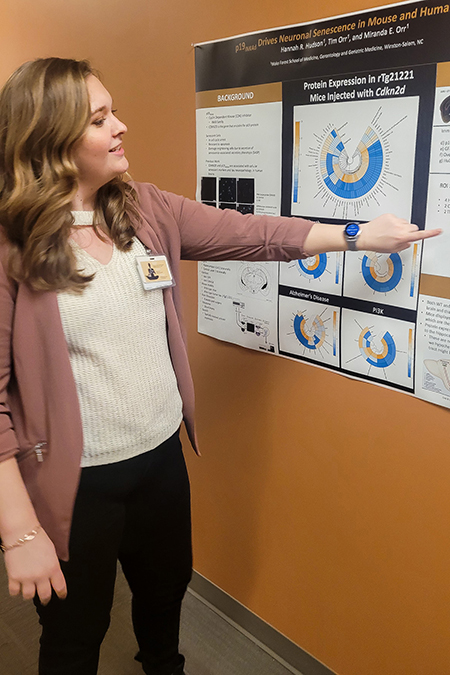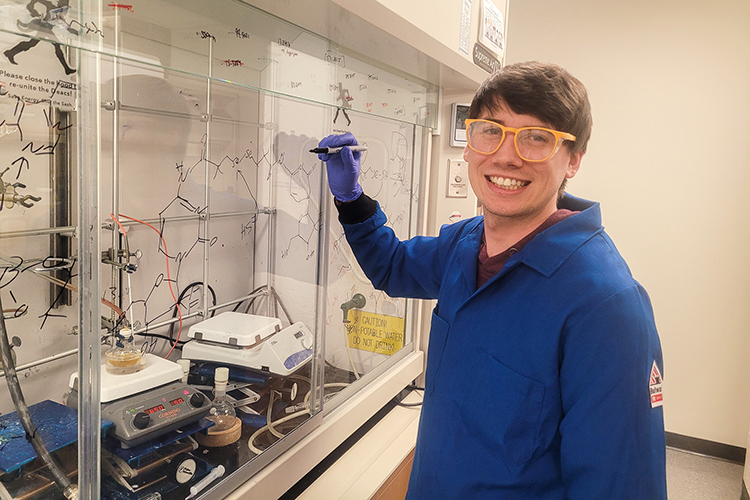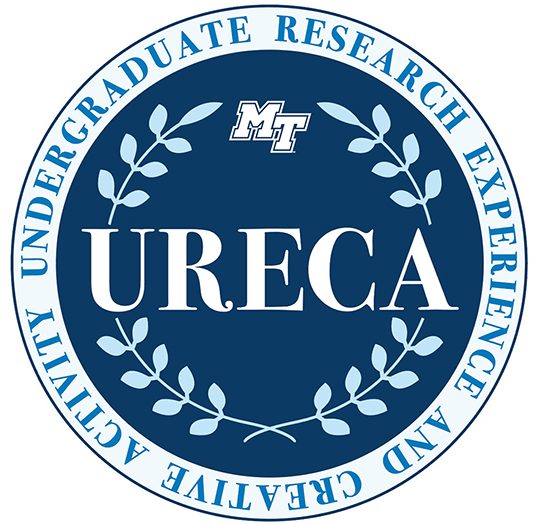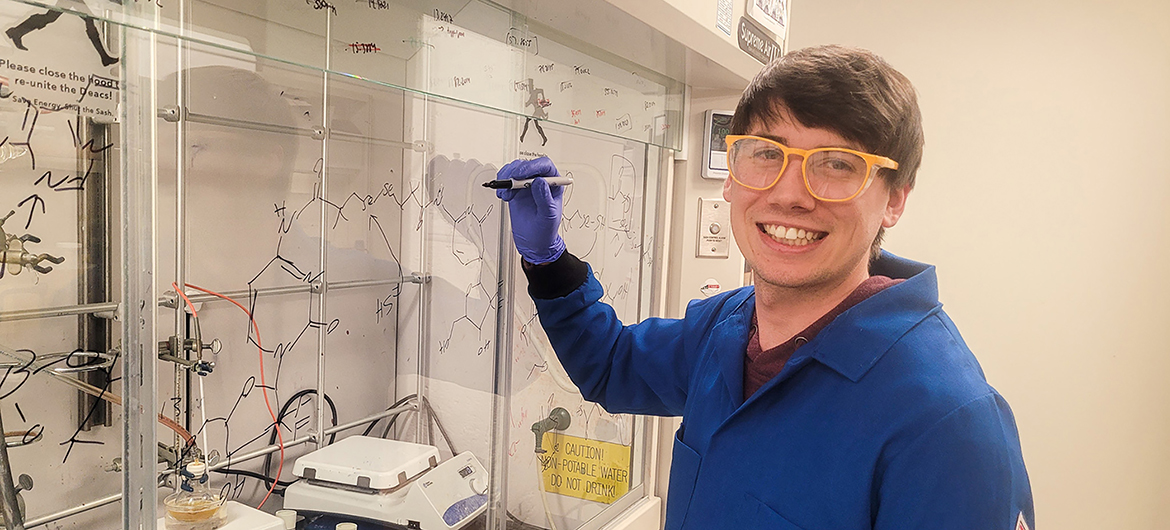Hannah Hudson graduated from MTSU with a degree from the Biochemistry Program and Psychology Department and a newfound career path — pursuing research in neuroscience at the doctorate level, which she started last semester at the Wake Forest University School of Medicine in the Neuroscience Ph.D. Program.
“I really did not know what research was until my first semester at MTSU,” Hudson said. “There, I met Dr. Tiffany Rogers (assistant psychology professor), and it completely changed my trajectory.”
Under Rogers’ mentorship, Hudson completed her own psychology and biochemistry research project from start to finish, even establishing a new laboratory technique that she used during her first rotation project at graduate school and impressed faculty.

“My peers’ undergraduate research opportunities cannot compare to the ones I had at MTSU,” the Hendersonville, Tennessee, native said. “MTSU allows undergraduates to conduct their own research and have their own projects, while most undergrads from other schools only assisted a graduate or postdoctoral student on their projects. My work at MTSU helped me get into my graduate program; there are very few other students who came into it directly out of undergrad.”
Hudson said MTSU faculty mentors and the university’s Undergraduate Research Center, or URC, with its Undergraduate Research Experience and Creative Activity grant are what put Blue Raider undergraduate researchers a step above.
“Dr. Rogers’ passion when she teaches and conducts research is contagious,” Hudson said. “She created an environment to ask questions, make mistakes and, most importantly, learn from them.
“The URC gave me the ability to put even more of my time and effort into my passion,” she said. “I received the opportunity to practice giving presentations in more of a stress-free environment at URC events. I also worked in the Office of Research and Sponsored Programs, which gave me an inside perspective on the URC and how much work Dr. Jamie Burriss (program manager) and others put in behind the scenes.”
Devin Weaver, an MTSU Department of Chemistry alumnus and another undergraduate researcher, also started at Wake Forest University last semester in the Chemistry Ph.D. Program.

“Research experience goes a long way when applying for a Ph.D. program, and I would say it’s the most important aspect for acceptance,” said Weaver, who echoed the importance of MTSU undergrads having their own research projects. “We (also) get more one-on-one time with our research advisor than students at most universities.”
Weaver said without his faculty mentor Kevin Bicker, associate chemistry professor, he would not be in a doctoral program.

“I don’t think he will ever realize how much he can change lives by just letting them join his lab,” said Weaver, who is originally from Dickson, Tennessee, and wants to pursue a career in academia. “The way he has changed my life is what inspires me to be a professor helping passionate students succeed.”
‘Crucial’ experience
Rogers said research experience is crucial in undergraduate education.
“First, students better understand if research is a good fit for them before they invest time and funds into a graduate education,” Rogers said.
“Second, when students do decide to pursue a graduate degree in a research-related field, they have an important leg-up in applying for competitive programs that will give them the best graduate training,” she added. “Even if students don’t pursue a research career, their exposure to how research is conducted, the care that is taken to ensure accuracy, and to the limitations of what we can conclude from research, makes them better able to consume information coming from a variety of sources with discernment and a healthy dose of skepticism.”

Rogers enjoys seeing her lab grow due to the undergraduate researchers’ contributions.
“Even more, I have enjoyed watching students arrive at the realization of their passion for research and watching them successfully take their next steps in graduate programs or career paths,” she said.
Bicker said it is a privilege to walk with some of these amazing students in this season of their career journey.
“They’re so excited about learning new science and techniques; it energizes me and is probably one of the favorite parts of my job,” Bicker said.

Bicker also credited the support network and funding of the URC in undergraduates’ research success.
“The URC has really grown the undergraduate research footprint at MTSU and made it more visible,” he said. “It has created networks of student researchers that can support each other in their pursuit of careers in research-powered fields, and it supports them in identifying and funding amazing travel opportunities for students to share their research and grow their network.”
To learn more about the opportunities available for undergraduate research, visit the Undergraduate Research Center website at https://www.mtsu.edu/urc/index.php.
— Stephanie Wagner (Stephanie.Wagner@mtsu.edu)


COMMENTS ARE OFF THIS POST